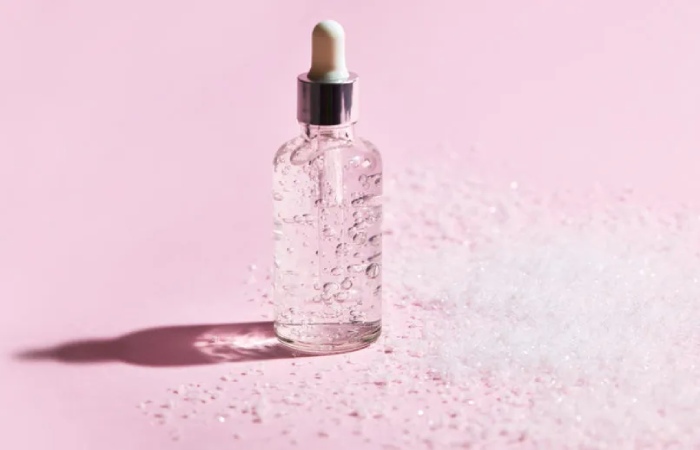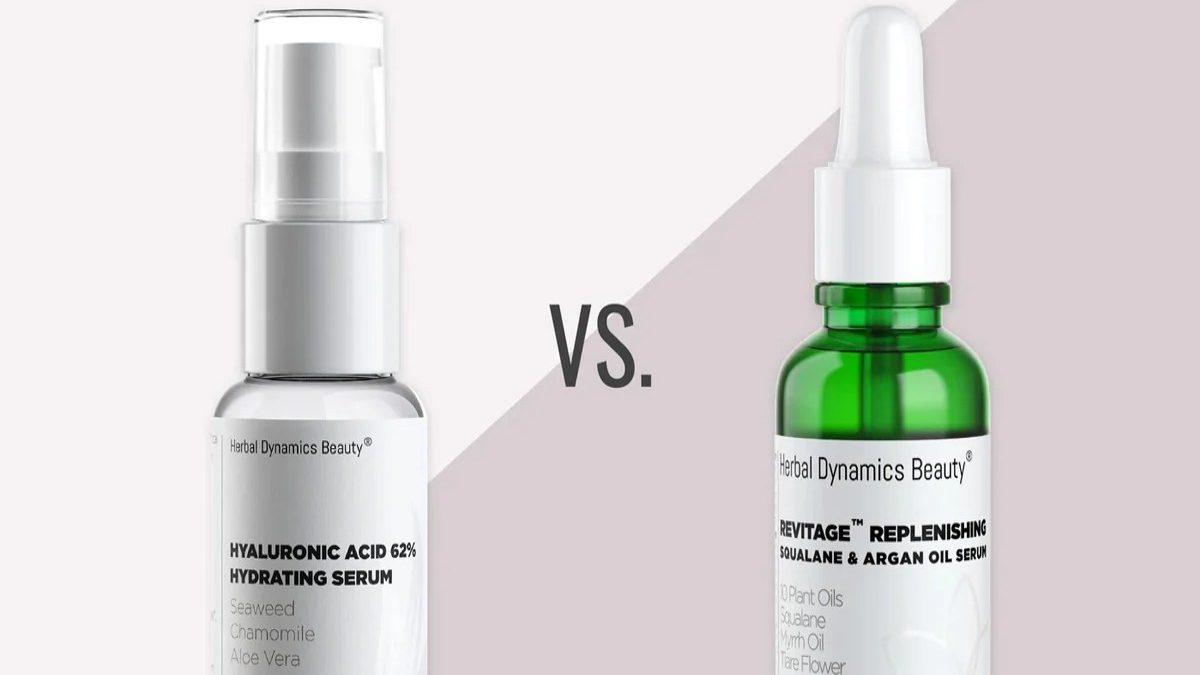Table of Contents
Introduction
These two skincare products, serum vs. oil, are considered similar in many ways, but each has its pros and cons. They can be used separately or stacked to work together.
Are you wondering how to add them to your skincare routine? First, you need to know the difference between serum and Oil. And if you need to use both.
What is Serum? – Serum Vs. Oil

The serum acts as a supplement for your skin. It’s a lightweight, concentrated liquid that penetrates deep to deliver active ingredients like peptides, antioxidant-rich vitamins, and glycolic acids to your skin for more targeted results. Serums can help you with various skin issues, such as uneven skin tone or texture and dull skin. They are usually water-based and contain light moisturizing ingredients such as hyaluronic acid and ceramides. However, they cannot replace your moisturizers.
It is primarily designed to deliver active ingredients deep into your skin. Good stuff lock-in. It’s essential to top it off with a moisturizer. Serums come in various textures, from thin and watery to thicker and gelatinous. Based on these differences in viscosity and formula, you can choose a serum that suits your skin type or problem.
What is face Oil? – Serum Vs. Oil
Recently, facial oils have become extremely popular. Face oils are a godsend if you have dehydrated skin or a weak skin barrier. It is designed to protect your skin from weather/temperature changes, moisturize and soften, nourish your skin barrier, and treat multiple skin conditions such as dryness and dullness.
The most significant difference between serum and Oil is their texture. Face oils have rich, emollient formulas that are often heavier than serums. Another difference between serums and oils is that the oil molecules are much larger and only serve to penetrate the outermost layers of the skin. Therefore, you should massage the oils into your skin for the best results.
Another critical difference between serum and Oil is that facial Oil is design to provide intense hydration. In addition, the essential oils and plant extracts in facial oils provide your skin with lipids that strengthen the skin barrier. It also stimulates your skin’s sebum production, maintaining and repairing your skin barrier. As a result, they are more effective than moisturizing creams and lotions, as they mimic your skin’s natural oil production.
How to Choose Between Serum and face Oil? – Serum Vs. Oil
Now that we know the difference between serum and Oil, how can we add them to our skincare routine? Whether you need serum, Oil, or both depends on your skin type and goals.
People with skin issues like acne or hyperpigmentation can add serum to their skincare routine formulated with vitamin C. This powerful antioxidant and peptide serum stimulates collagen production, brightens your skin, improves skin repair, and reduces inflammation.
People with dull, dehydrated skin can benefit greatly from facial oils. This face oil protects against damage while hydrating and soothing your skin. However, if you have acne-prone skin, we recommend using facial oils sparingly, as oil-based products can clog pores and aggravate acne.
What Comes First: Serum Vs. Oil?
You can use serums and oils to treat several skin issues simultaneously. Layering is the key to getting the best results. As a general rule, we recommend applying products from lightest to heaviest to ensure your products have a chance to be absorb. Serums come first because they are lightweight and packed with active ingredients. Next, apply your face oil after the serum to seal and prevent dehydration.
Conclusion
Generally speaking, an oil is for moisturizing the skin, while a serum vs. Oil is for doing a specific job. Unlike oils, serums can also water-base. Good to know: If you have clear skin concerns like dullness, dark spots, or fine lines and wrinkles, using a serum may be the right solution.

